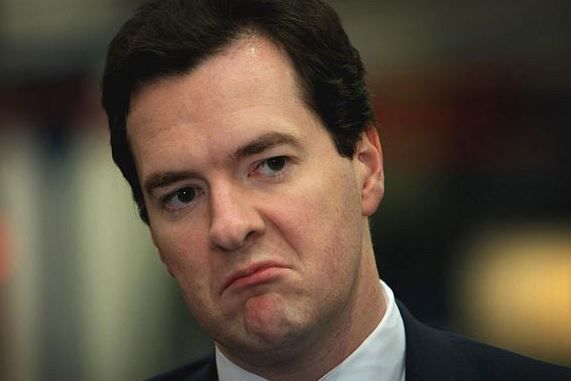The UK sold off a £2.1bn stake in Royal Bank of Scotland (RBS), representing the return of the company to the private sector and a milestone in the country’s recovery from the financial crisis of 2007-09.
The sale reduces the Treasury’s holding in RBS down from 78.3% to 73.2%.
UK Financial Investments (UKFI), which holds the government’s stake in RBS, said it sold 630-million shares at 330p each to institutional investors on Monday. The shares were sold at a 2.3% discount on RBS’s Monday closing price.
When the company was bailed out seven years ago the Labour government paid a price of about 500p per share – 170p more than what the shares were sold off for earlier this week.
This has caused sparked a political row, with some MPs who sat that the sale was rushed and not well thought out.
Chancellor of the Exchequer George Osborne said that despite selling at a loss it is in the best interest of the country’s economy.
Mr Osborne said:
“While the easiest thing to do would be to duck the difficult decisions and leave RBS in state hands, the right thing to do for the economy and for taxpayers is to start selling off our stake,”

Was the sale in the best interest of the UK taxpayer? Some say it wasn’t.
Labour MPs criticise Osborne’s decision
Chris Leslie, shadow finance minister, criticised the sale.
He said:
“RBS had to be bailed out urgently, but it doesn’t have to be sold off at the same speed,”
Adding:
“The chancellor needs to justify his haste in selling off RBS while the bank is still awaiting a US settlement for the misselling of subprime mortgages.”
Barbara Keeley, the shadow treasury minister, told the BBC Today programme:
“The most important question for the tax-payer – are we getting good value for our money? This used to be something the chancellor used to care about, he said he would only sell these RBS shares when we get good value – clearly that’s not now,”
RBS may face massive fines because of its involvement in the US subprime mortgage crisis
In addition, RBS may receive massive fines by US authorities because of its association with the country’s subprime mortgage crisis.
The company said that it has set aside £2.1 billion for a settlement, but there are no details yet about when a deal will occur.
RBS chief executive says the bank is now “stronger, simpler and fairer”
Despite all the controversy regarding the sale, RBS chief executive Ross McEwan said:
“I’m pleased the government has started to sell down its stake.
“It’s an important moment and reflects the progress we are making to become a stronger, simpler and fairer bank. There is more work to be done but we’re determined to build a bank the country can be proud of.”
Citigroup, Goldman Sachs, Morgan Stanley and UBS handled the RBS sale.
